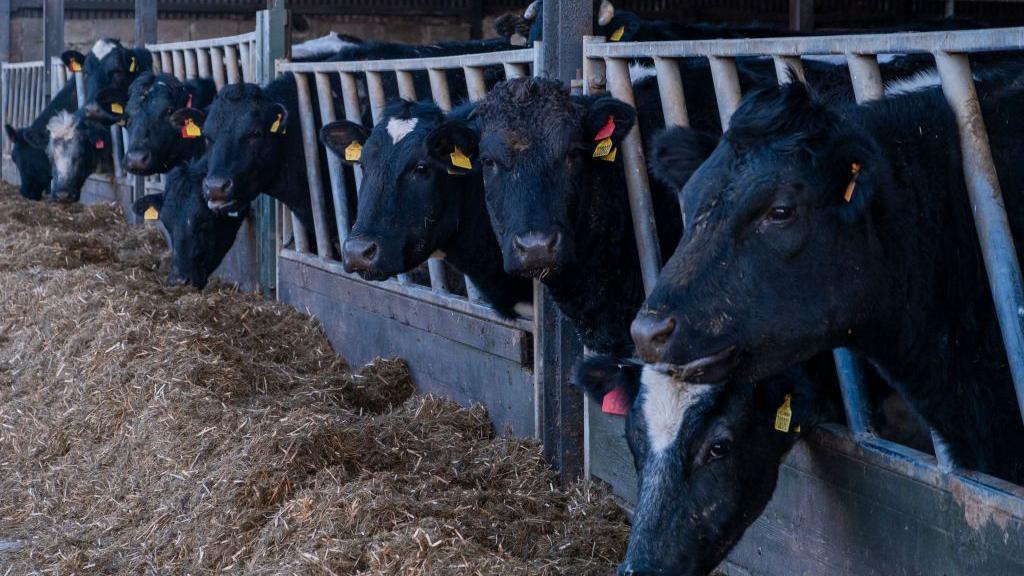Farm under control measures after bluetongue case

There are four confirmed cases of the livestock disease in Wales
- Published
A temporary control zone has been put in place around a farm in south Wales following a confirmed case of bluetongue.
Wales' chief vet Richard Irvine confirmed a cow had tested positive for the virus at the farm near Chepstow, Monmouthshire, on Friday.
There are four confirmed cases, external of the livestock disease in Wales, with the other three in Powys.
Spread by midges, bluetongue poses no threat to the public or food safety but can have serious consequences for cloven hoofed animals like sheep and cattle.
Bluetongue a major challenge to farming - minister
- Published1 October
First cases of deadly livestock virus identified in Wales
- Published26 September
Bluetongue, also known as BTV-3, was "actively circulating" on the farm, with the control zone in place "to help prevent the spread of disease by livestock movements", the Welsh government said.
The affected farm is also under restrictions, it added.
The control zone stretches west towards Newport and north towards Monmouth.
Dr Irvine urged farmers to "be vigilant for the signs of the disease, source stock responsibly and report any suspect cases" to the Animal Plant Health Agency immediately.
"Vaccination is the best way to protect livestock and livelihoods from the worst impacts of this potentially devastating disease," he added.
Huw Irranca-Davies, rural affairs secretary, urged people to continue to "work hard together to protect our Welsh livestock sectors from this potentially devastating disease".
He has previously said the virus poses a "major challenge" to Wales' farming industry, pleading with farmers to vaccinate their animals.
Meanwhile, the Royal Welsh Agricultural Society, said the Winter Fair, due to take place near Builth Wells at the end of November, is "going ahead as planned", but said all exhibitors from England must vaccinate their animals.
Those taking part from Wales and Scotland are strongly recommended to vaccinate their animals.
"We are strongly recommending vaccination now as a precaution, and in case the situation changes and new rules make it a requirement later on," they said.
Wales recorded its first cases of the livestock disease this year on Friday, on a farm near Presteigne in Powys and another at the farm near Chepstow.
A further two cases have since been identified in cattle on farms near Llangammarch Wells and Gladestry in Powys.